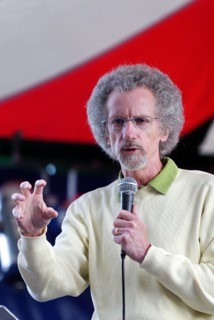To Know as We Are Known: Education as a Spiritual Journey Paperback – May 28, 1993
by Parker J. Palmer (Author)
4.6 out of 5 stars 139 ratings
130 pages
This primer on authentic education explores how mind and heart can work together in the learning process. Moving beyond the bankruptcy of our current model of education, Parker Palmer finds the soul of education through a lifelong cultivation of the wisdom each of us possesses and can share to benefit others.
Editorial Reviews
Review
"A phenomenon in higher education."-- "The New York Times""An eye-opening critique of contemporary approaches . . . shows in concrete forms how to be a teacher and learner in the search for truth." -- Henri J. M. Nouwen"Palmer's book will engage anyone who's involved in teaching and learning either in secular or religious institutions . . . it compels us to underline and reflect at nearly every sentence and paragraph . . . it unfolds how exciting and joyful the search for knowledge is when guided by heart-seeking teachers." -- James Sparks, University of Wisconsin, Madison"Without a doubt the most inspiring book on education I have read in a long time." -- John H. Westerhoff III, Duke University
From the Publisher
A spirituality of education that challenges teachers to move beyond conventional ideas of instruction and learning to develop vital new teaching methods incorporating insights from traditional contemplative wisdom.
About the Author
Parker J. Palmer, a popular speaker and educator, is also the author of The Active Life. He received the 1993 award for "Outstanding Service to Higher Education" from the Council of Independent Colleges.
Excerpt. © Reprinted by permission. All rights reserved.
Chapter One
Knowing Is Loving
The Violence of Our Knowledge
I have felt it myself. The glitter of nuclear weapons. It is irresistible if you come to them as a scientist. To feel it's there in your hands--to release the energy that fuels the stars. To let it do your bidding. To perform these miracles--to lift a million tons of rock into the sky. It is something that gives people an illusion of illimitable power and it is, in some ways, responsible for all our troubles, I would say--this what you might call technical arrogance that overcomes people when they see what they can do with their minds.1
These words were spoken by a celebrated physicist in The Day after Trinity, a film documentary about the team of American scientists who produced the first atomic bomb. "Trinity" was the ironic code name for that original explosion, and only on "the day after" did the scientists stop to analyze and agonize over the outcomes of their work.
The film is filled with images of horror. For me, the most horrifying is not that mushroom shape that appears in our dreams and lurks just over our waking horizon. Instead, it is the image of intelligent and educated people--the most intelligent and the best educated our society has produced-devoting themselves so enthusiastically to such demonic ends. They appear in the film as people possessed by a power beyond their control-not the power of the government that summoned their services, but the power of their knowledge itself. One scientist interviewed in the film reveals that "prior to the shot, back in the lab, there had been some speculation that it might be possible to explode the atmosphere--in which case the world disappears."2 But the "experiment" went on as scheduled, the irresistible outcome of the knowledge that made it possible.
Watching this film, reliving that history, I saw how our knowledge can carry us toward ends we want to renounce--but we renounce them only on "the day after." I understood then what Jonathan Schell says in The Fate of the Earth: "It is fundamental to the shape and character of the nuclear predicament that its origins lie in scientific knowledge rather than in social circumstances."3 I understood, too, what Robert Oppenheimer meant in his post-Hiroshima pronouncement, "The physicists have known sin."
We need images of hope to counteract our horror, knowledge of grace to counteract our knowledge of sin. That is what I want to offer in this book by describing a way of knowing and educating that might heal rather than wound us and our world. But in my spiritual life I have learned that hope and grace do not come cheap. They require honest self-scrutiny first, and then confession, an offering up of our own inner darkness to the source of forgiveness and transformation.
I am not a nuclear physicist, and I have never participated in a project with such vast implications as "Trinity," but I identify with those scientists. Their story is my story too, and when I am tempted to sit in judgment on them I am only evading the judgment that falls upon me. I value their confession of sin on a large scale because it helps me make my own confession of smaller but similar sins.
For all the differences between those scientists and me, we have one thing in common. We are well-educated people who have been schooled in a way of knowing that treats the world as an object to be dissected and manipulated, a way of knowing that gives us power over the world. With those scientists I have succumbed to the arrogance that comes when we see what our minds can do. The outcomes of my arrogance have been less than world-shaking because my powers are small. But in my own way I have used my knowledge to rearrange the world to satisfy my drive for power, distorting and deranging life rather than loving it for the gift it is.
In my late twenties, still impressed by what I could do with my mind, I wrote a book about how we know the world around us. (By grace, that book was never published--not, I suspect, because it was wrongheaded, but because my wrongheadedness was not packaged well enough to sell.) The themes of that book' may sound distant and abstract, but bear with me for a moment: I want to show how they shaped the way one educated person used his knowledge and lived his life.
In that book I argued that knowledge emerges as we impose a mental order on the chaos that surrounds us. The world, I said, presents itself to us as nothing more than a welter of sensory impressions--colors, tastes, smells, and textures; weights, heights, and lengths. To make sense of this chaos we use concepts to organize our impressions and theories to organize our concepts. The test of truth for any one of these mental constructs is simply how well it fits the data and helps us solve the intellectual or practical problem at hand.
Not only did my book imply that the world has no necessary shape or order of its own; it also suggested that the shape imposed on the world by our minds has no validity outside of a culture that happens to find that pattern congenial. Christians and Zen Buddhists, scientists and artists have different ways of ordering the world because they live in different cultures and have different problems to solve. By my scheme, knowing becomes an arbitrary process, subject only to the rules of whatever culture-game one happens to be playing at the time.
Looking back, I see how my theory of knowing helped form (or deform) my sense of who I was and how I was related to the world.
Customer Reviews: 4.6 out of 5 stars 139 ratings
Parker J. Palmer
Follow
Biography
PARKER J. PALMER is a writer, teacher, and activist whose work speaks deeply to people in many walks of life. He is founder and Senior Partner Emeritus of the Center for Courage & Renewal. He holds a Ph.D. in sociology from the University of California at Berkeley, as well as 13 honorary doctorates, 2 Distinguished Achievement Awards from the National Educational Press Association, and an Award of Excellence from the Associated Church Press. In 1998, the Leadership Project, a national survey of 10,000 educators, named him one of the 30 most influential senior leaders in higher education and one of the 10 key agenda-setters of the past decade. In 2010, he was given the William Rainey Harper Award (previously won by Margaret Mead, Marshall McLuhan, Paulo Freire, and Elie Wiesel). In 2011, the Utne Reader named him as one of "25 Visionaries Who Are Changing Your World.” For two decades years, the Accrediting Commission for Graduate Medical Education has given annual Parker J. Palmer “Courage to Teach” and “Courage to Lead” Awards to directors of exemplary medical residency programs. "Living the Questions: Essays Inspired by the Work and Life of Parker J. Palmer," was published in 2005. Born and raised in the Chicago area, he lives in Madison, Wisconsin.
Show Less
How would you rate your experience shopping for books on Amazon today
Very poor Neutral Great
Customer reviews
4.6 out of 5 stars
Top reviews
Top reviews from the United States
Zach
5.0 out of 5 stars Phenomenal book on knowing (epistemology) and teaching!
Reviewed in the United States on August 4, 2019
Verified Purchase
Parker Palmer has written out a fascinating and engaging approach to teaching that unearths the epistemological foundation of that endeavor. Though his approach and points are not necessarily “Christian,” I think his religious background does provide some key values and practices that can uniquely enable and encourage the growth he is calling for in this book. One of the themes which cuts through the book is Palmer’s pushback against and objectivist approach to the world. He really advocates for a personal and relational approach to knowing. He talks about engaging truth in troth, in a sort of covenanted, promissory way that trusts and believes in the relationship with truth.
By the end of the book Palmer is saying some things which might almost feel reminiscent of the “monk in a cave” sort of mysterious talk about knowing and truth, but by the time he gets to those statements he’s established a foundational understanding of what knowing is, so the statements feel less “monkish” and more a pleading to know in this way.
One of the best aspects of this book is its length – it is not very long. The edition (1993) I had was barely 125 pages, with most chapters falling around the 15 page mark. The writing, though rich, is not too deep. This is a book I would highly recommend any teacher (especially high school teachers and above), and I think it would also provide some very good concepts and ideas (and practices) for pastors and church leaders/teachers. All in all, even if you are not a Christian, I think you can take away some really excellent things from this book about what it means to know (epistemology).
==
thelifemosaic
4.0 out of 5 stars My First Parker Palmer Book and NOT My Last!
Reviewed in the United States on January 29, 2013
Verified Purchase
This is the first book I've read by Parker Palmer although I've read essays, chapter excerpts, and several authors who cite him several times over the years. I was excited to have a full work by Mr. Palmer to take in and I found it exceptional even if I perhaps found myself perplexed from time to time (I'm sure Mr. Palmer would say that's a good thing).
Immediately, Mr. Palmer presents a central metaphor of learning to do life "whole" by opening both the mind's eye which sees "a world of fact and reason" and the eye of the heart to see "a world warmed and transformed by the power of love." (Intro) A teacher, then, uses both eyes and becomes a "mediator between the knower and the unknown." (29) All throughout the book Palmer lends sound wisdom and keen insight into teaching in meaning-filled and meaning-creating ways. He reminds the reader of the need for a learning space to be one that has openness, boundaries, and hospitality. (70) Conventional classrooms offer hurdles of "hidden curriculum" to rethink such as focusing on someone else's (teacher's) vision of reality, a hesitation to be held up for inspection and scrutiny as the teacher / authority / expert, and a structure set up to build isolation easily and often. (34-39) No-brainer wisdom? Perhaps, yet Mr Parker presents these pieces in a whole that is unified in tone and written in accessible, beautiful prose that won't leave the reader saying, "I already knew that!" but instead, "Of course!"
This quote particularly struck me as something I've articulated several times in my life: "Several times in my teaching career I have become someone else's student, and each time the experience has had a marked impact on my own teaching. I was forcefully reminded that education is not just a cognitive process, not just the transmission of facts and reasons." (115) This duality is yet again a way Palmer hopes people will see the value in being a "whole person" seeing and living with both eyes open. It was as if Mr. Palmer looked at my life mixed with playing the student and the teacher role and said, "I know exactly what you mean."
As for occasionally feeling perplexed, I think I was surprised by how often I felt like the text was non-succinct even thought it has a relatively short page count and narrow focus. I had to fight moments when I was tempted to think, "Yes, you said that; please move on." One example is the story of Abba Felix which, while a great story, runs through the book more like a thick scratchy rope than a thread and while I was captivated by the many examples and stories in chapters 5-6 I had to push myself in earlier chapters. With that said, there are too many gems in this book to dismiss it as rough. Thanks for reading.
4 people found this helpful
==
Alex Tang
4.0 out of 5 stars Knowing as a Journey
Reviewed in the United States on January 18, 2006
Verified Purchase
In a time when the morale of the teaching profession in most countries is at an all time low, Palmer's book stand out as a beacon to warn and draw our attention to what education is truly about. The story about Abba Felix and that there are `no more words nowadays' stands at the heart of this book. In this short story about a Desert Father, Palmer has developed a spirituality of education in which obedience to God's words will lead to spiritual formation of the teacher and the student.
First, Palmer rightly pointed out that objectivism and the pursuit of knowledge without reflection is dangerous. His illustration with the Manhattan project is instructive. However, he should have included the societal, economic and cultural influences in his argument. One of the problems with education today is that instead of being a process of `reunification and reconstruction of broken selves and world', it became a means to obtaining `paper'qualifications. Education has been hijacked to be an instrument in which students can achieve economic success and teachers became clogs in the machine that produce thousands of graduates annually who are only skilled in passing examinations.
Second, he mentioned `a learning space' as an antidote to `objectivist' teaching methods. This learning space has openness, boundaries and hospitality. I wonder how Palmer would translate that into an Asian context. Openness, boundaries and hospitality will be difficult in a culture of shame (`saving face') and hierarchal respect for elders, social ranks and qualifications.
Finally, `transformation of teaching must begin in the transformed heart of the teacher'. Palmer listed the disciplines of studying widely, silence, solitude and prayer as important in bringing about this transformation. However Palmer painted a bland picture of a `generic' God as the focus of these disciplines. I would that he be more Trinitarian in his approach.
Read less
8 people found this helpful
==
See all reviews
Top reviews from other countries
Translate all reviews to English
Lucy Skywalker
5.0 out of 5 stars What a definition of teaching!
Reviewed in the United Kingdom on November 27, 2014
Verified Purchase
Here are the book's Contents:
1. Knowing Is Loving
2. Education as Spiritual Formation
3. The Teaching Behind the Teaching
4. What Is Truth?
5. To Teach Is to Create a Space . . .
6. . . . In Which Obedience to Truth Is Practiced
7. The Spiritual Formation of Teachers
"To teach is to create a space . . . in which Obedience to Truth is practiced" - this is the most stunning aphorism of teaching I've ever encountered. For that alone I would award five stars.
This is a much-needed statement that redeems the heart of teaching in a materialistic, state-dependent educational setup. This book gently and powerfully leads us to reconnect with our own lost / forgotten / unnoticed / denied / hidden heart. Only out of such a place of love of honesty and truth can one grow in understanding and stature as a teacher, keep studying the universe with passion - and keep sharing the precious journey of discovery with integrity.
===
フィリップ&ティモシィー
5.0 out of 5 stars 「霊性」と「教育」を見事に関連付けた良書
Reviewed in Japan on October 16, 2008
Verified Purchase
近代教育学は「学習者が学ぶべき事柄を客観的に見つめる」ことを要請してきた。それを180度転換し、両者の人格的関係に気づいてこそ、本来の学習が成立するとした。「霊性の涵養」と「教育」の問題を見事に結びつけた良書。邦訳と照らし合わせると更に興味深い学びがなされる。
Report abuse
Translate review to English
가르침과 배움의 영성 (반양장)
파커 J. 파머 (지은이),이종태 (옮긴이)IVP2014-12-12
원제 : To Know as We Are
책소개오늘날 교육에서 영성의 새로운 회복을 제안한다. <삶이 내게 말을 걸어올 때>의 저자 파커 팔머가 오늘날 교육의 위기를 지배욕과 호기심에서 찾고 앎과 가르침과 배움의 영역에서 영성을 다시금 주목한다. 사막 교부들과 수도원, 퀘이커교도 등의 전통에서 영성 훈련을 찾아 소개하는 등 기독교적 지식관, 진리관, 교수 방법 등에 대한 통찰을 담고 있다.
그 외 그리스도인 교사의 영성 훈련과 실제 수업 진행을 위한 방법론적 예시 등 수업 운영에 대한 제안도 담고 있다. 2000년 출간된 책의 개정판이다.
목차
한국어판 서문
1993년판 서문_교육에서의 공동체 회복
감사의 글
들어가며
1. 안다는 것은 사랑한다는 것이다
2. 영성 형성으로서의 교육
3. 가르침 배후에 숨겨진 가르침
4. 진리란 무엇인가?
5. 가르침이란 공간을 창조하는 일이다
6. 진리에 대한 순종이 실천되는 공간
7. 가르치는 이의 영성 형성
주
인명·주제 색인
책속에서
교육의 영성에 대한 책, 그것도 기독교적 관점에서 쓰인 이 책이 무슨 이유로 그렇게 다양한 독자들에게 읽혔던 것일까? 나는 그것이 부분적으로, 이 책은 다른 전통들을 존중하며 그들로부터 배울 자세를 갖춘 영성을 제공한다는 사실 때문이기를 바란다. 그러나 나는 더 근본적인 이유가 있음을 알고 있다. 그것은 어떤 분야든 오늘날 모든 교육자들은 극심한 고통에 처해 있기 때문이다. 그 고통으로 인해 그들은 새로운 곳에서 도움을 찾게 되었던 것이다.…나는 교육 전체게 스며 있는 이러한 고통을 ‘단절의 고통’이라고 부른다. (...) 영적 전통은 그러한 고통중에 있는 우리에게 다른 곳에서는 발견되기 어려운 희망을 제공할 수 있다. - 본문 중에서 접기
추천글
가르침과 배움에 관한 현대 접근법들을 탁월하게 비평하는 이 책은, 어떻게 진리를 추구하는 교사와 학생이 될 수 있는지를 구체적으로 보여 준다. - 헨리 나우웬
교육은 지식의 전달 수단이 아니라 인격적 관계를 맺는 영성의 과정임을 보여 주는 이 책은, 참된 교육을 갈망하는 교사와 학부모 그리고 학생들에게 길잡이가 되어 줄 것이다. - 한기채 (중앙성결교회 목사, 前 서울신학대학교 교수)
저자가 주장하는 ‘영성 형성으로서의 교육’, ‘가르치는 이의 영성 형성’ 등의 내용이 오늘날 미국뿐 아니라 한국의 교육계, 특히 기독교 교육계에 큰 가르침과 깨우침을 줄 것이라 믿는다. - 이원설 (숭실재단 이사장, 한국기독교학교연맹 이사장)
개인의 신앙과 교육 현장에서의 활동 사이의 괴리감으로 고민하는 이들에게 교육에 대한 깊은 성찰과 경험을 바탕으로 공동체와 사랑, 영성의 회복을 강조하고 있는 이 책은 도전과 자극이 되기에 충분히 탁월한 책이다. - 임종화 (영신여자실업고등학교 교사)
오랜 세월 내가 읽은 교육에 관한 책 중 의심할 여지없이 가장 영감을 주는 책이다. - 존 웨스터호프 3세 (전 듀크대학교 신학부 교수)
저자 및 역자소개
파커 J. 파머 (Parker J. Palmer) (지은이)
저자파일
신간알리미 신청
미국 고등교육에서 가장 영향력 있는 인물이자, 왕성한 저술과 다양한 강연으로 미국 각계각층의 뜨거운 지지를 얻으며 시민들의 멘토로 추앙받는 사회운동가. 작가이자 교사, 활동가로서 그의 가르침은 교육, 의료, 종교, 법률, 자선 사업, 정치, 사회 변혁 등에서 커다란 영감을 주고 있다. UC 버클리에서 사회학 박사학위를 취득한 뒤 워싱턴 DC에서 5년 동안 공동체 조직가로 활동했으며 성인 학습자와 구도자를 위한 ‘퀘이커 삶-배움 공동체’에서 10년간 일했다. 저서로는 《가르칠 수 있는 용기》《비통한 자들을 위한 정치학》《모든 것의 가... 더보기
최근작 : <삶이 내게 말을 걸어올 때>,<일.창조.돌봄의 영성>,<모든 것의 가장자리에서> … 총 73종 (모두보기)
이종태 (옮긴이)
저자파일
신간알리미 신청
한국외국어대학교 영어과를 졸업하고 장신대 신학대학원에서 신학을 공부했다. 미국 버클리 GTU(Graduate Theological Union)에서 기독교 영성학으로 철학박사(Ph. D.) 학위를 받았다. 《순전한 기독교》, 《고통의 문제》, 《시편 사색》, 《네 가지 사랑》, 《인간 폐지》(이상 홍성사), 《다윗: 현실에 뿌리박은 영성》, 《가르침과 배움의 영성》(이상 IVP), 《당신은 무엇을 믿는가》(복있는사람) 등 다수의 책을 번역했다.
최근작 : <진정한 종>,<핵심포인트 시청각 실물설교집>,<확실한 새신자 교육방법> … 총 117종 (모두보기)
출판사 소개
IVP
출판사 페이지
신간알리미 신청
최근작 : <예수님의 기도 학교>,<IVP 1세기 기독교 시리즈 세트 - 전3권>,<하나님을 사랑한 사상가 10인>등 총 673종
대표분야 : 기독교(개신교) 4위 (브랜드 지수 1,505,096점)
출판사 제공 책소개
“교육에 있어서 일대 사건과 같은 책이다!”-뉴욕 타임스
가르침과 배움의 영역에서 소외되었던 영성을 회복하라!
「비참한 자들을 위한 정치학」의 파커 파머가 지식이 소외되어 버린 우리 시대를 향해 주장하는 교육의 영성. 앎과 가르침과 배움은 단순한 학문 활동을 훨씬 넘어서는 의미를 가진다. 앎과 가르침과 배움은 깊은 인간적 의미를 지닌 활동, 위대한 인간적 목적을 가진 활동, 우리 자신과 이 세계의 변화에 기여하는 전인적 활동이다.
오늘날 교육의 위기를 지배욕과 호기심에서 비롯한 지식관에서 찾는 저자는, 이제 앎과 가르침과 배움의 영역에서 소외되어 왔던 영성을 새롭게 회복해야 함을 역설한다. 궁극적인 지혜의 근원으로서 사랑을 탐구하고, 오래 전 사막 교부들과 수도원, 퀘이커교도 등의 전통에서 영성 훈련을 찾아 소개하며, 실제 수업 진행을 위한 방법론적 예시 등을 담고 있는 본서는 오늘 메마른 시대에 교육의 길을 모색하는 교사들에게 열정을 회복해 주는 위로와 자극이 될 것이다.
접기
북플 bookple
이 책의 마니아가 남긴 글
친구가 남긴 글
내가 남긴 글
친구가 남긴 글이 아직 없습니다.
마니아 읽고 싶어요 (7) 읽고 있어요 (0) 읽었어요 (14)
이 책 어때요?
구매자
분포
0.1% 10대 0.3%
8.9% 20대 6.9%
13.7% 30대 10.8%
20.3% 40대 13.7%
11.8% 50대 8.3%
2.0% 60대 3.2%
여성 남성
평점
분포
10.0
100%
0%
0%
0%
0%
100자평
등록
카테고리
스포일러 포함 글 작성 유의사항
구매자 (0)
전체 (1)
공감순
등록된 구매자평이 없습니다.
마이리뷰
구매자 (1)
전체 (3)
리뷰쓰기
공감순
가르침과 배움의 영성 새창으로 보기
우리는 무엇을 가르치고 무엇을 배우는가. 우리는 어느 학문을 가르치고 배운다고 할 때, 무슨 내용(지식)을 어떤 방식으로 전달하는가를 중요하게 생각한다.주입식 교육에 익숙하기 때문이다. 우리 교육에 있어서 중요한 것은 정확한 암기력과 빠른 습득속도이다. 그런 사람들이 사회에서 인정을 받는다. 이런 교육이 잘못된 부분이 있다는 것을 우리는 알고 있다. 그러나 어디서부터 손대야 할지 몰라서 해오던 대로 계속 할 뿐이다.
진정한 앎이란, 지식 습득이 아니다. 그리고 교육의 목표도 그것이 되면 안 된다. ‘사랑’을 통해서 우리는 진짜 교육을 할 수 있다. 가르치는 학문을 사랑하고, 교사는 학생을, 학생을 교사를, 그리고 학생들 서로가 서로를 사랑할 때 진정한 앎이 일어난다.
나는 가르치는 자리에 있는 사람으로서 제대로 가르치고 있는지 고민하게 됐다. 나는 내가 가르치는 학문을 진정으로 사랑하는가. 나는 학생들을 진정으로 사랑하는가. 그리고 가르치는 그 학문이 진실한 지 고민하고 있는가. 삶으로 살아내고 있는가. 교육은 공동체적이고 상호소통이 일어나야 하는데, 일방적으로 전달만 하려고 하지 않는가. 많은 질문들이 내 안에서 맴돈다.
학생이 스스로 생각하고 학문과 자신을 만나게 할 수 있도록 주입식 교육을 하지 않아야겠다. 그래서 학생들이 마음을 열어서 학문을 받아들일 수 있도록 안전한 터를 제공하는 교육자가 되고 싶다. 사랑하지만 무르지 않고, 가르치지만 배울 줄 아는 사람이 되자. 늦은 밤이라 정리되지 않은 글이다. 그래도 삶에서 지속적으로 돌아보고 고민해볼만한 좋은 책이란 것은 틀림없다.
- 접기
nulloveheng 2020-04-25 공감(0) 댓글(0)
Thanks to
공감
가르침과 배움의 깊이 새창으로 보기
가르침과 배움의 공동체의 외피를 뚫고 들어가는 인식, 수업의 철학, 그 바탕을 생각하게 한다.
미소나무 2016-08-15 공감(0) 댓글(0)
Thanks to
공감
리더들이 읽어야 할 책 새창으로 보기 구매
교수님 추천으로 이 책을 읽게 되었습니다. 읽는 동안 내내 감탄과 공감이 저를 흥분시켰고, 희열마저 느끼게 하였습니다. 진리가 무엇이고 진정한 교육이 무엇인지를 일깨워줄 뿐만 아니라 상담을 하는 저에게 지침서가 되기도 하였습니다. 마지막 페이지 마지막 글자를 읽고 책을 덮으면서 가슴이 뛰는 희열을 맛보았습니다. 그 감동에 사진을 찍고 주변 몇 사람에게 카톡을 보내면서 읽어보라고 권유를 하기도 했습니다. 교육자든 교육자 지망생이든, 상담자든 상담자 지망생이든 이 책에서 전달하는 진실의 메시지를 받아들인다면 자라나는 세대들의 앞날은 행복 그 자체일 것이라는 생각에 미리 가슴 벅참을 느꼈습니다. 부디 많은 사람들이 이 책에서 전달하고자 하는 교육의 참 길을 걸었으면 하는 바람으로 리뷰를 남깁니다. 말주변이 없어 책의 내용은 전달하지 못하고 읽으면서 느꼈던 감동만 적으면서 다 전달하지 못함에 아쉽기만 한 것이 지금의 제 심정입되니다.
- 접기
요술손 2017-01-06 공감(0) 댓글(0)
Thanks to
공감








